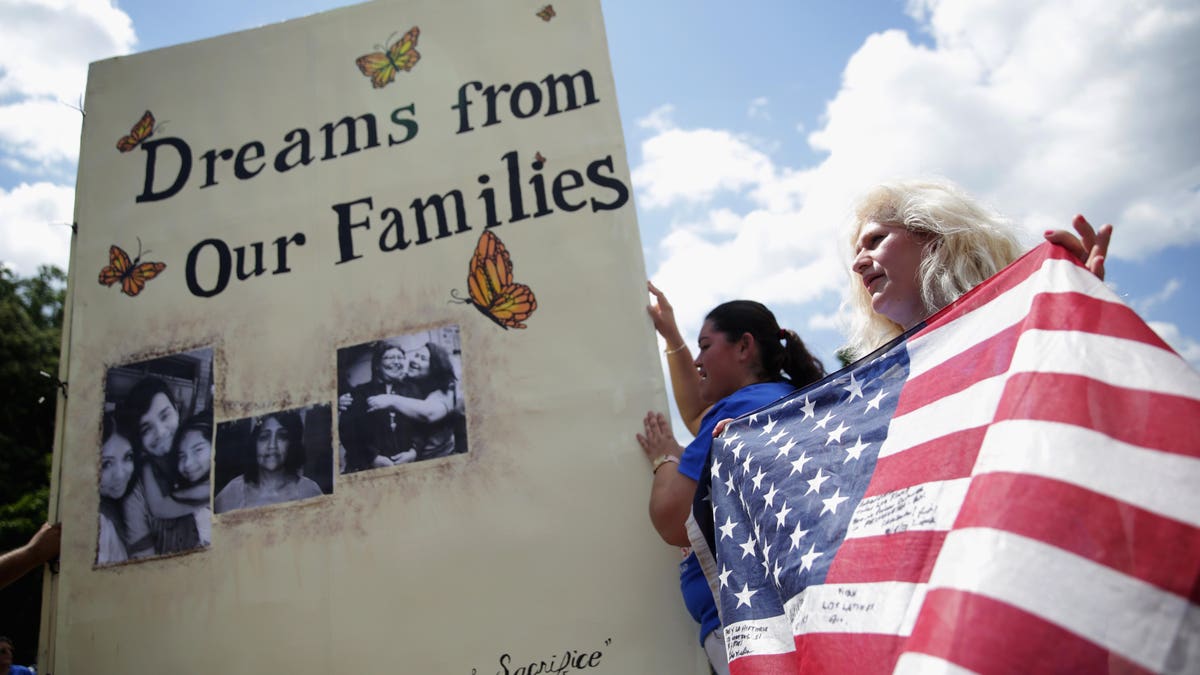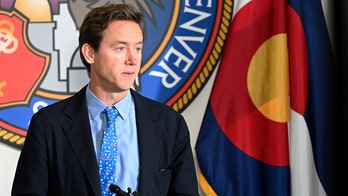
Activists of United We Dream participate in a rally in front of the White House. (2014 Getty Images)
Dreamers, all those millions of people who were brought to the U.S. illegally by their parents as minors and were temporarily shielded from deportation by 2012’s Deferred Action for Childhood Arrivals Program (DACA), are looking at their future with uncertainly.
Their fate in this country lies in the hands of president-elect Donald Trump, who has vowed to take a hard line against illegal immigration. No one is certain how hard he will press for deportation once he becomes president.
Trump’s immigration platform was a cornerstone of his campaign. He said he would eliminate DACA and take a harder line on deporting individuals.
But how that will pan out remains to be seen. Immigrant rights groups and affected communities wait with baited breath. Some are bracing for a fight.
“For me there are concerns and alarm but we are ready to fight,” said Cesar Vargas, a DACA recipient who also worked on the Bernie Sanders campaign and was in Arizona monitoring polls on Nov. 8.
He said they are planning forums to begin educating people on their rights as DACA recipients. “Some people are very, very afraid. We are telling people to stay firm, stay committed. Huge opportunity to mobilize a historic movement.”
Those in favor of strict immigration laws say that even if Trump undoes DACA, that doesn’t mean Dreamers should give up hope. Some say Dreamers should take priority over other undocumented immigrants because they are in the country illegally through no fault of their own. But, some say, laws protecting them should be passed through Congress — not through executive action.
“The idea for amnesty for illegals who came as young children, there’s something to that,” Mark Krikorian, executive director for the Center for Immigration Studies, a think tank that favors restrictionist immigration policies. “But it’s not something we should do without coupling it with enforcement methods.
Daniel Garza, executive director of the Libre Initiative, a conservative group, said Dreamers should be a legislative priority.
“I worry a lot about the DACA kids, we need to protect them,” Garza said. “They’re vulnerable. We will push to move quickly toward immigration reform … We’re concerned about kids who came forward because the president promised them protection and exposed them to a quick deportation. That’s not fair.”
DACA recipients – even those working in politics – say they are now unsure about their future.
“Getting rid of DACA, it’s one of the easiest things he can do in first 100 days,” said activist Erika Andiola, who worked on the Sanders campaign and continues to work for the affiliated activist group. “It’s a reality we are facing.”
Andiola exchanged texts with a number of people who led the Dreamer movement to figure out how to begin informing undocumented residents of their options.
In the wake of the election results, protests and rallies in support of undocumented students sparked across the country. In the University of Connecticut in Storrs, they called on their university to make a public statement in support of students who are at risk of deportation and various groups of color.
Ambar Pinto, who manages a deportation hotline for the advocacy group United We Dream said she could be undocumented in May, when her DACA application expires.
“I feel like we’re going to try and protect our community but [the threat is] real,” Pinto said. “We can go back to being undocumented and go back to being fearful of being deported.”




